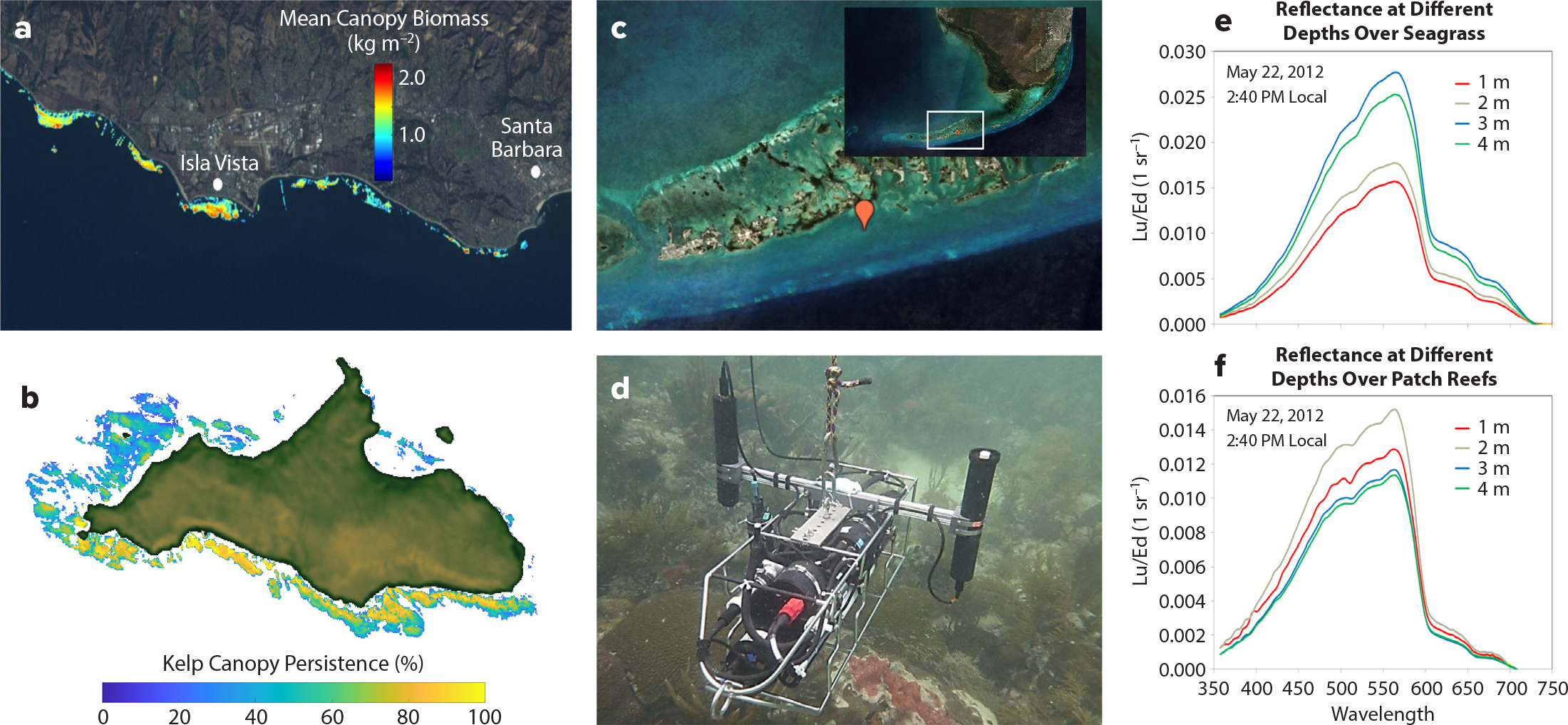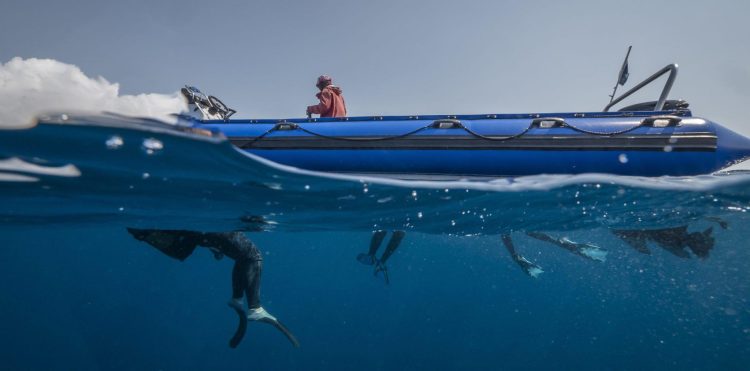Welcome to the wild and wonderful world of marine biology, where fish wear scales as fashion statements and whales have underwater tea parties. Dive deep into the mysterious depths of the ocean with us as we explore the bizarre creatures that call it home. From the quirky behavior of clownfish to the majestic dances of sea turtles, get ready to be amazed, amused, and maybe a little confused by the fascinating world of marine biology. So grab your snorkel, strap on your flippers, and let’s embark on an underwater adventure like no other!
The Importance of Marine Biology in Understanding Ocean Ecosystems
When it comes to understanding the intricate web of life in our oceans, marine biology is absolutely crucial. Without the dedicated work of marine biologists, we would be completely lost at sea…literally! Here are some reasons why marine biology is so important in unraveling the mysteries of ocean ecosystems:
1. Studying marine species helps us understand biodiversity:
- By analyzing the different species that inhabit our oceans, marine biologists can get a better grasp of the diversity of life in these vast waters.
- Knowing the different species helps us understand the roles they play in the ecosystem and how they interact with one another.
2. Monitoring ocean health can lead to better conservation efforts:
- Marine biologists study the health of marine ecosystems to determine if they are thriving or in danger.
- By monitoring changes in the environment and species populations, they can help implement conservation measures to protect endangered species and habitats.
3. Marine biology helps us address climate change:
- By studying how marine species and ecosystems are impacted by climate change, we can better understand the effects of global warming on our oceans.
- This knowledge can help us develop solutions to mitigate the effects of climate change on marine life and ecosystems.
Exploring the Diversity of Marine Life
Ever wondered what lies beneath the surface of the vast ocean? Well, prepare to be amazed by the incredible diversity of marine life that dwells in the depths of the sea. From schools of colorful fish to mysterious deep-sea creatures, the ocean is a treasure trove of fascinating beings.
Picture yourself diving into the crystal-clear waters of the tropics, where you can swim alongside majestic sea turtles and playful dolphins. The ocean is like a bustling metropolis, with each marine species playing a unique role in the ecosystem. From the tiniest plankton to the largest whales, every creature contributes to the delicate balance of life in the sea.
One of the most fascinating aspects of marine life is the array of weird and wonderful creatures that lurk in the depths. From the elusive giant squid to the mesmerizing jellyfish, the ocean is full of surprises. And let’s not forget about the quirky sea creatures like the blobfish, which looks like a grumpy old man, or the clownfish, known for its symbiotic relationship with sea anemones.
So, next time you find yourself at the beach, take a moment to appreciate the beauty and diversity of marine life. Whether you’re snorkeling in a coral reef or strolling along the shore, remember that the ocean is teeming with fascinating creatures waiting to be discovered. Who knows what hidden wonders you might encounter as you embark on your own underwater adventure!

Key Concepts in Marine Biology
If you’ve ever been curious about the underwater world, then buckle up because we’re diving into some that will blow your mind faster than a blowfish inflating itself!
First off, let’s talk about biodiversity in the oceans. Did you know that there are more species of plankton in a single drop of seawater than there are different types of mammals on land? It’s like a microscopic party down there, with krill, diatoms, and copepods all mingling together like tiny oceanic socialites.
Next up, we have ecosystems in the ocean – it’s like a bustling metropolis down below the waves! From coral reefs teeming with life to deep-sea hydrothermal vents hosting their own peculiar communities, the ocean is a wild place full of surprises.
And let’s not forget about adaptations in marine organisms. From bioluminescent creatures using light to communicate in the depths of the ocean to fish with specialized swim bladders that help them stay afloat, marine creatures have some seriously cool tricks up their sleeves.

Cutting-Edge Technologies Used in Marine Biology Research
Forget old-school research methods, we’re diving into the world of cutting-edge technologies in marine biology research. Strap on your scuba gear and get ready to be amazed by the tools and techniques scientists are using to uncover the mysteries of the deep.
First up, we have satellite tracking systems. Gone are the days of following a tagged fish in a rowboat - now researchers can track the movements of marine creatures from the comfort of their lab. With satellite tracking, scientists can monitor migration patterns, habitat preferences, and even behavior in real-time. It’s like Big Brother, but for fish.
Next on our list is underwater drones. These high-tech gadgets allow scientists to explore the depths of the ocean without getting their feet wet. Equipped with cameras and sensors, underwater drones can capture stunning footage of marine life in their natural habitat. Just imagine a group of curious dolphins swimming up to investigate a drone – it’s like a technological meet-and-greet.
And last but not least, we have genomic sequencing. By analyzing the DNA of marine organisms, scientists can unlock the secrets of evolution, adaptation, and biodiversity. It’s like cracking the code of the oceanic world, one nucleotide at a time. Who knew that a little DNA could hold so many answers?

Challenges and Opportunities in Marine Conservation
Marine conservation is no easy feat, filled with challenges that can make even the most experienced conservationists want to pull their hair out. From overfishing to pollution, the ocean faces numerous threats that require innovative solutions. However, with challenges also come opportunities to make a positive impact and protect our marine ecosystems for future generations.
One of the biggest challenges in marine conservation is the threat of plastic pollution. The ocean is filled with plastic debris, from microplastics to large floating islands of trash. This not only harms marine life but also poses a danger to human health. However, this challenge presents an opportunity for individuals and organizations to come together and implement strategies to reduce plastic waste and clean up our oceans.
Another challenge in marine conservation is the decline of certain species due to overfishing. Fish populations are dwindling, leading to imbalances in marine ecosystems. Through sustainable fishing practices and the establishment of marine protected areas, we have the opportunity to help these species recover and thrive once again.
Climate change also poses a significant challenge to marine conservation, with rising sea levels and ocean acidification threatening marine ecosystems. By advocating for policies that reduce carbon emissions and protect coastal habitats, we can work towards a more sustainable future for our oceans.
Exciting Career Paths in Marine Biology Research and Exploration
If you have a fascination with the mysterious depths of the ocean and a passion for discovering new species, then a career in marine biology research and exploration might just be the perfect path for you! Dive into the world of underwater science and embark on an exciting journey filled with adventure.
Imagine spending your days exploring vibrant coral reefs, studying the behavior of majestic sea creatures, and discovering new species that have never been seen before. With a career in marine biology, every day is an opportunity to make groundbreaking discoveries and contribute to our understanding of the world’s oceans.
From conducting research on the impact of climate change on marine ecosystems to studying the migration patterns of whales, there are endless opportunities to make a difference in the field of marine biology. Join a team of passionate scientists and researchers who share your love for the ocean and work together to protect and preserve our planet’s most precious resource.
So, if you’re ready to dive deep into a career that is both challenging and rewarding, consider pursuing a path in marine biology research and exploration. Who knows what wonders you may uncover beneath the waves!
FAQs
What is the most common misconception about marine biology?
One common misconception is that marine biologists spend all their time swimming with dolphins and whales. In reality, a lot of our time is spent in labs or conducting research out at sea. We leave the dolphin riding to the tourists!
What is the most interesting marine creature you’ve encountered in your research?
Oh, where do I even begin? From the majestic sea turtles to the mysterious anglerfish, every marine creature is absolutely fascinating in its own way. But if I had to pick one, I’d say the sarcastic fringehead. Just Google it and thank me later.
How does climate change impact marine life?
Climate change is like the annoying sibling that never leaves you alone – it affects everything! Rising temperatures, ocean acidification, and habitat destruction all have serious implications for marine life. It’s like a never-ending episode of Sharknado, but way scarier.
What is the weirdest adaptation you’ve come across in marine organisms?
Where do I even start? Have you heard of the mimic octopus that can imitate other marine creatures? Or the mantis shrimp that can punch with the force of a .22 caliber bullet? Mother Nature is the ultimate prankster, and marine organisms are the ultimate clowns.
How do marine biologists contribute to conservation efforts?
We’re like the eco-warriors of the ocean, fighting for the rights of Nemo and his friends. By studying marine ecosystems, monitoring populations, and advocating for conservation policies, we’re the guardians of the deep blue. Aquaman better watch out!
—
Dive Deeper into the Wonders of the Sea!
So there you have it, folks! The mesmerizing world of marine biology is filled with endless mysteries waiting to be discovered. Whether you’re fascinated by colorful coral reefs, peculiar sea creatures, or the vast oceanic ecosystem as a whole, there’s no shortage of awe-inspiring wonders to explore.
So grab your scuba gear, pack your sunscreen, and get ready to dive into the fascinating world of marine biology. Who knows what incredible secrets and strange creatures you might encounter along the way? Just remember, the ocean is vast and full of surprises, so be prepared for anything!
Stay curious, stay passionate, and never stop exploring the incredible depths of the sea. Happy swimming, fellow marine enthusiasts!



